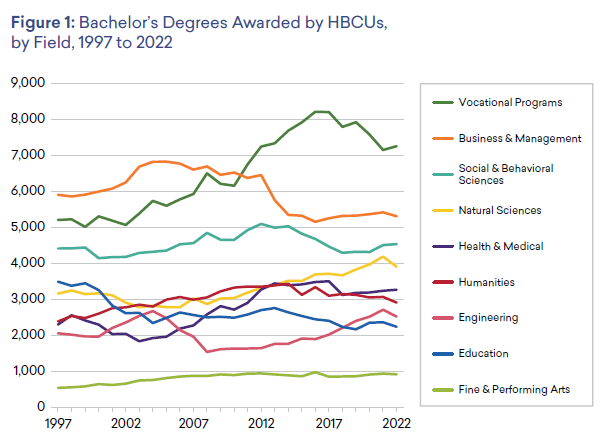Figure 1: Bachelor’s Degrees Awarded by HBCUs, by Field, 1997 to 2022
In 2022, HBCUs awarded 2,907 bachelor’s degrees in the humanities (see figure 1). This was down 15% from the recent high of 3,434 degrees awarded in 2014. The total number of bachelor’s degrees awarded by HBCUs also declined from 2014 to 2022, but by a comparatively modest 2.5%.
Much of the decline in humanities bachelor’s completions at HBCUs occurred from 2014 to 2018, with completions then plateauing at around 3,000 through 2022. Prior to 2014, both HBCUs and non-HBCU institutions experienced a substantial increase in humanities degree completions: up 44% from 1997 at HBCUs and up 35% at other institutions. The post-2014 decline at HBCUs was substantial, but at other institutions it was all the more so, with completions dropping by more than a fifth.
In the past, HBCUs awarded a relatively small share of their degrees in the humanities; as of 2022, though, HBCUs and all other institutions had converged in the share of bachelor’s degrees awarded in the field.
Among the 88 HBCUs awarding humanities bachelor’s degrees, 36 awarded more degrees in 2022 than they did in 1997—in many cases, substantially more. North Carolina A&T State University had the largest increase, with the number of degrees rising from 85 in 1997 to 333 in 2022 (accounting for more than 11% of the humanities bachelor’s degrees awarded by HBCUs that year). Most of the humanities degrees the school awarded were classified as “liberal studies” (with concentrations in African American studies, cultural studies, or prelaw). In an email to Indicators staff, Jeffrey
Dwayne Mack, chair of the program, reported that “Much of the interest we see in Liberal Studies is attributed to the online degree option we offer for our program.” He added, “Having some influence on constructing [their] concentration is very attractive to students, especially non-traditional students.” The latter may also be true on some other campuses, like Delaware State and Texas Southern, which saw substantial growth in the number of humanities bachelor’s degree completions after introducing similar interdisciplinary liberal studies/general humanities degrees, even though the programs are not online.
